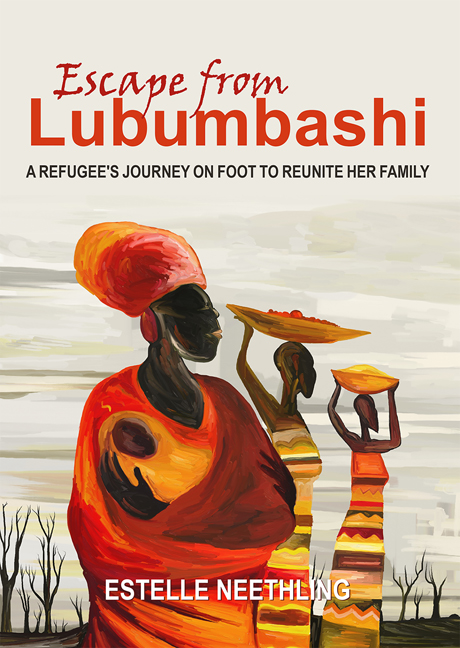Introduction
Summary
This is the true story of Adolphine, a refugee from the Democratic Republic of the Congo (DRC) who was twenty two when she had to flee her home in the war-ravaged DRC in 1996. She walked thousands of kilometres across Southern Africa to be reunited with her husband Sepano in Cape Town after two years of a desperate search. Her incredible journey to escape the ruinous rule of Mobutu Sese Seko was filled with many moments of terror and despair, every country having its own share of xenophobia. She told the writer – the then national coordinator of the international Red Cross's Restoring of Family Links programme – “I felt as if the earth had teeth, I felt its bite when I was fleeing through Africa…”.
Despite all the media attention, refugees are generally known as a faceless mass of displaced people; their lives and personal stories remain a mystery. Little is known of those desperate souls, for example, who have drowned in the Mediterranean, trying to make that perilous crossing to Europe from North Africa or the Middle East. The plight of refugees worldwide raises serious questions about the role of the United Nations in holding despotic regimes accountable for their people as well as highlight the responsibilities of host countries towards refugees.
Her story – told as far as possible in her own words – is a powerful intimate account of belonging and the anguish of displacement, of settling and being uprooted and how a household navigates this across time and space. Her story strongly highlights the vulnerability of women and children in times of war and unrest. As recognised refugees in South Africa she and her family were thrust into the vortex of the 2008 xenophobic violence against ‘foreigners’ – the first time during which “foreign nationals” were displaced within South Africa – and survived through courage and hope.
The narrative spans across the years of Adolphine's childhood in the Congo and in Zambia in the late 1970s up to 2014, five years after she and her family became integrated in their community as permanent residents in South Africa.
Adolphine's experience is by no means unique. But the telling of it is important, as it puts a ‘human face’ on a ‘humanitarian’ disaster.
- Type
- Chapter
- Information
- Escape from LubumbashiA Refugee's Journey on Foot to Reunite her Family, pp. x - xiPublisher: University of South AfricaPrint publication year: 2021

